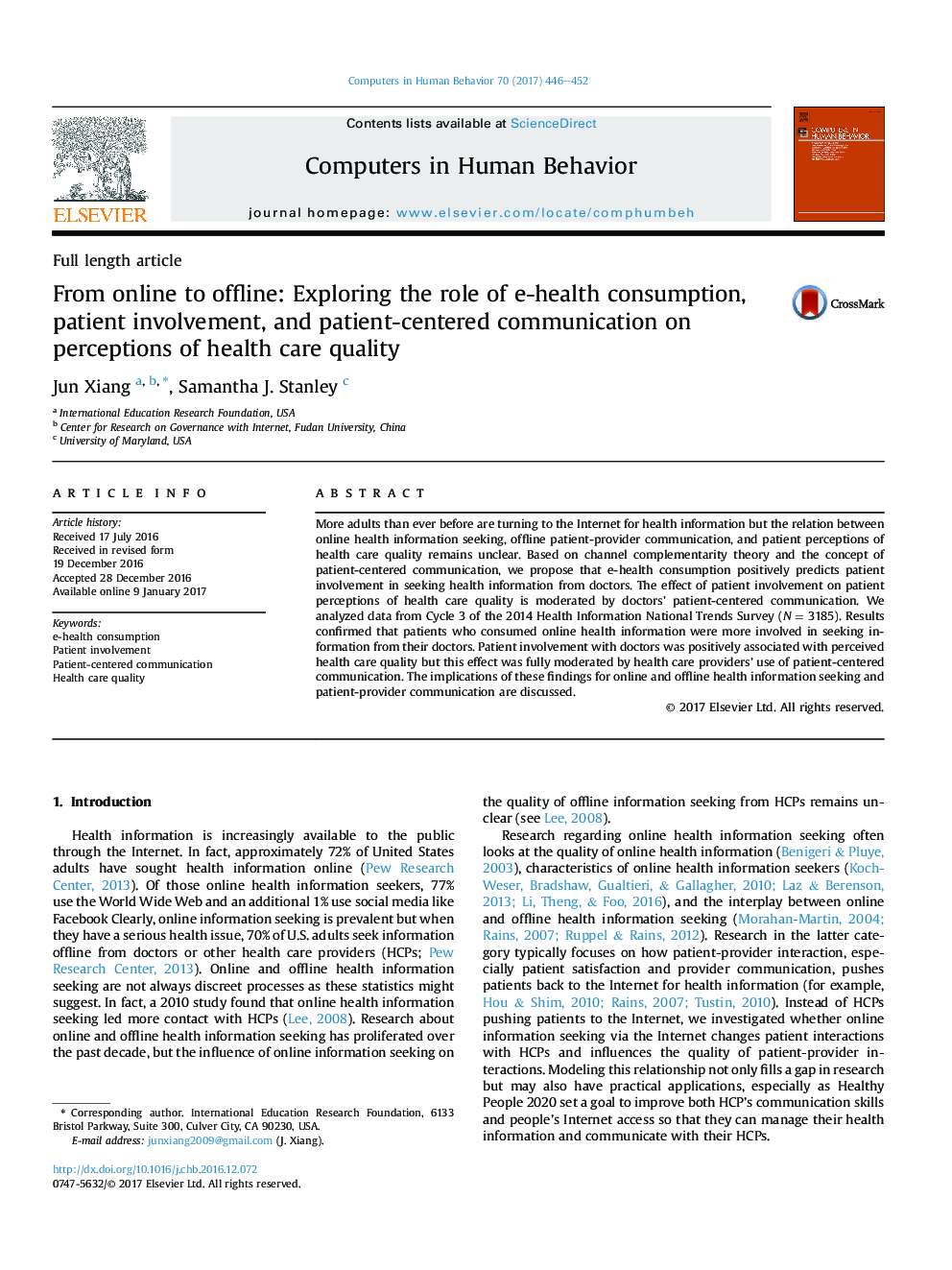| Article ID | Journal | Published Year | Pages | File Type |
|---|---|---|---|---|
| 4937316 | Computers in Human Behavior | 2017 | 7 Pages |
Abstract
More adults than ever before are turning to the Internet for health information but the relation between online health information seeking, offline patient-provider communication, and patient perceptions of health care quality remains unclear. Based on channel complementarity theory and the concept of patient-centered communication, we propose that e-health consumption positively predicts patient involvement in seeking health information from doctors. The effect of patient involvement on patient perceptions of health care quality is moderated by doctors' patient-centered communication. We analyzed data from Cycle 3 of the 2014 Health Information National Trends Survey (NÂ =Â 3185). Results confirmed that patients who consumed online health information were more involved in seeking information from their doctors. Patient involvement with doctors was positively associated with perceived health care quality but this effect was fully moderated by health care providers' use of patient-centered communication. The implications of these findings for online and offline health information seeking and patient-provider communication are discussed.
Related Topics
Physical Sciences and Engineering
Computer Science
Computer Science Applications
Authors
Jun Xiang, Samantha J. Stanley,
